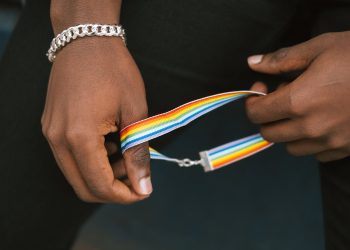In a notable development, a judge in North Dakota has ruled against immediately halting the state’s prohibition on gender-affirming health care for minors, dealing a blow to families and advocates who are challenging the constitutionality of the law.
Details of the Court’s Decision
Overseeing the case, District Judge Jackson Lofgren refused the plaintiffs’ request for a temporary restraining order. This does not mark the end of the legal struggle, however, as the plaintiffs have sought a preliminary injunction to stop the law’s enforcement while their challenge proceeds. This injunction is set to be reviewed in a January hearing.
Advocates Voice Disappointment and Determination
Brittany Stewart, the lead attorney for Gender Justice and representing the impacted families, voiced her disappointment but remains hopeful. She believes that a comprehensive examination of the evidence will lead the court to abolish the ban, which she deems the sole fair and constitutional solution.
Judge Lofgren’s Basis for Ruling
Judge Lofgren’s decision was partly based on the plaintiffs’ approximate five-month delay in lodging their complaint. He also referred to their argument for being recognized as a protected class, a status not yet acknowledged by the North Dakota Supreme Court, and their unique interpretation of state constitutional principles.
The Controversial Legislation
The contentious North Dakota law criminalizes gender-affirmation surgeries for minors and makes prescribing hormone therapies or puberty blockers a misdemeanor. Proponents argue that it safeguards minors from irreversible effects of these treatments, while critics highlight the detrimental psychological and physical impacts on transgender youth.

Family Struggles in North Dakota
The ban has compelled numerous North Dakota families to seek gender-affirming care for their children outside the state. The law’s grandfather clause, meant to protect children already undergoing treatments, is seen as ambiguous and risky by health care providers, resulting in a suspension of such services.
Nationwide Trend in Legislation
The North Dakota statute is reflective of a broader movement in states with Republican-controlled legislatures, where similar bans have been enacted. These laws have sparked a range of legal challenges and varied judicial responses throughout the country.
Diverse Judicial Reactions Across States
Judges in states like Arkansas, Georgia, Indiana, and Montana have temporarily blocked these bans pending ongoing legal challenges. In Florida, the ban is generally enforced except for those who have legally contested it. On the other hand, initial suspensions in Alabama, Kentucky, and Tennessee have been overturned by federal appeals courts, allowing these bans to be enforced.
Implications of the Ruling
The ongoing case in North Dakota underscores a pivotal moment in the nationwide legal disputes over gender-affirming care for minors. As the case moves towards the preliminary injunction hearing, it continues to draw attention to the complex and divisive nature of this issue. The outcomes of this and similar cases across the U.S. will significantly impact transgender youth and their access to essential health care services.
©unitedradiance.org



















